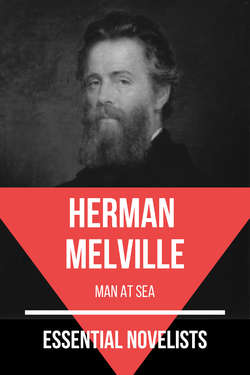Читать книгу Essential Novelists - Herman Melville - August Nemo, John Dos Passos, Ellen Glasgow - Страница 3
На сайте Литреса книга снята с продажи.
ОглавлениеAuthor
HERMAN MELVILLE was born in New York City on August 1, 1819, to Allan and Maria Gansevoort Melvill (Maria added the "e" to the family name following her husband's death). In the mid-1820s, young Herman fell ill to scarlet fever, and though he regained his health not long afterward, his vision was left permanently impaired by the illness.
In 1841, Melville embarked on a sea voyage after being hired to work aboard the Acushnet, a whaling ship. His subsequent wild journey provided the sparks for his yet-to-be-realized literary career: After arriving at the Marquesas Islands of Polynesia in 1842, Melville and a crewmate deserted the ship and, soon after, were captured by local cannibals. Although Melville was treated well, he escaped after four months on board another whaling ship, the Lucy Ann, and was jailed after joining the crew in a mutiny. He eventually wound up in Hawaii before catching a ride back to Massachusetts on the USS United States, arriving home more than three years after he left.
Melville immediately set about putting pen to paper to capture his experiences. Typee: A Peep at Polynesian Life (1846), a combination of his personal tales and imagined events, drew attention for its detailed descriptions of seafaring life and a seemingly too-wild-to-believe plot. The author followed in 1847 with an equally successful sequel, Omoo: A Narrative of Adventures in the South Seas.
The author in 1851 delivered what would become his signature work, Moby-Dick (initially titled The Whale). Moby-Dick, categorized as American Romanticism, is based on both Melville's years of experience aboard whaleships and the real-life disaster of the Essex whaleship. While Moby-Dick eventually achieved immense critical acclaim, Melville didn't live to witness that success. In fact, the book didn't bring him any wealth or respect during his lifetime.
Melville delivered a series of lectures throughout the late 1850s, and the following decade he began a 20-year career as a customs inspector in New York City. He also turned his creative interests to poetry during this period, publishing a collection called Battle-Pieces and Aspects of the War in 1866.
Melville had finally begun work on another novel when he died of a heart attack in New York City on September 28, 1891. His early fame had vanished by then, but many of his books were eventually reprinted, and his name began slowly gaining traction in the literary world. By the early 1920s, Melville had become a well-known figure among readers and critics alike; his last novel also saw the light of day, published in 1924 as Billy Budd, Sailor.
